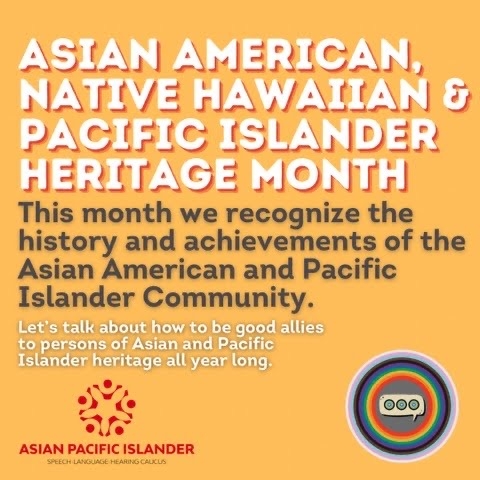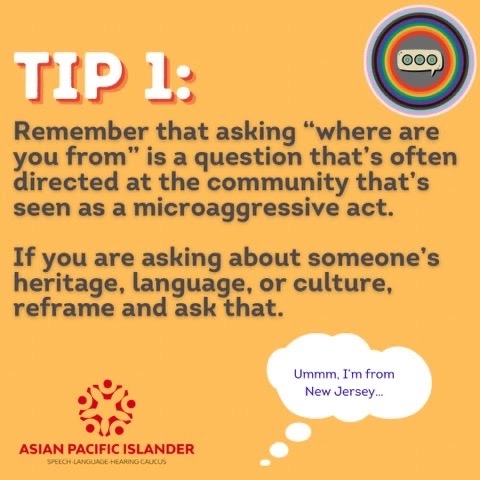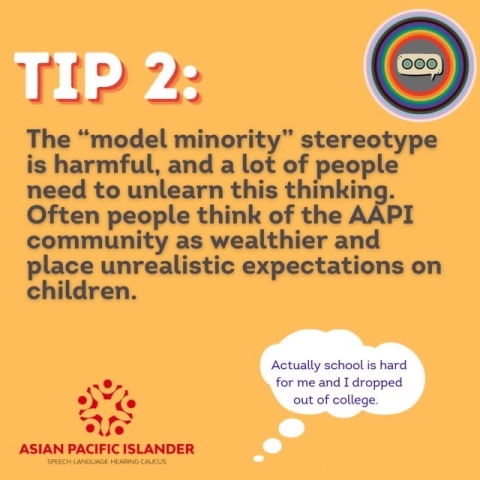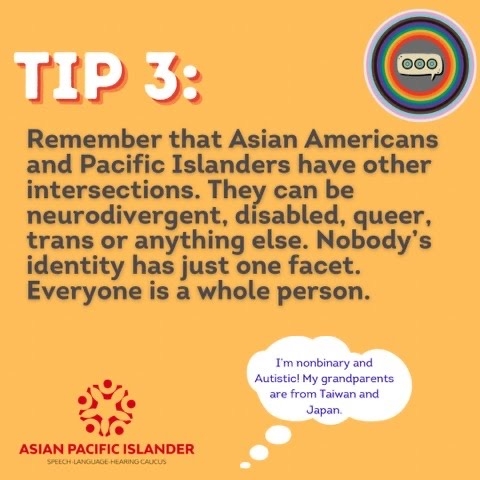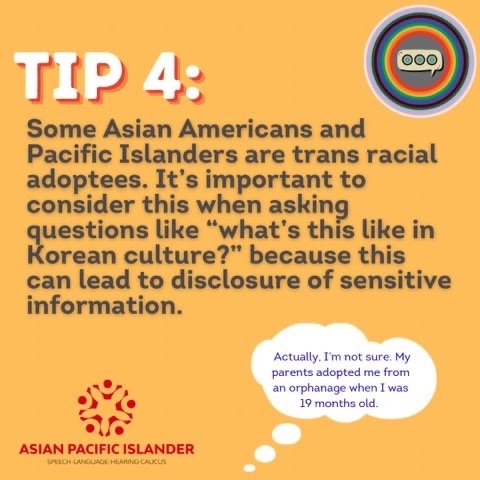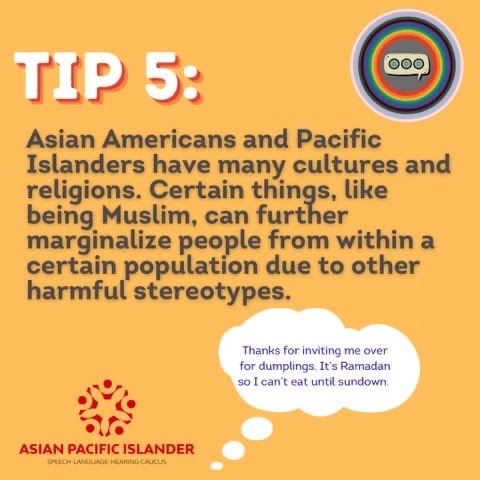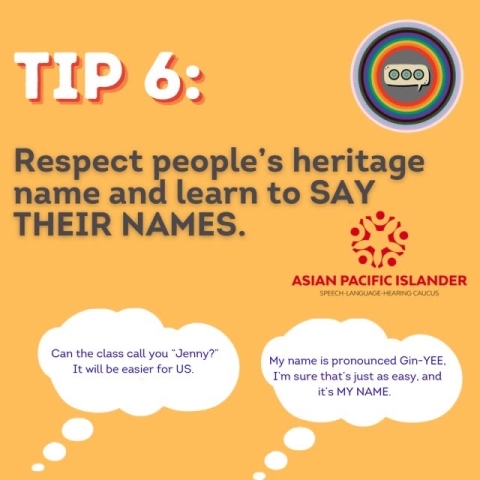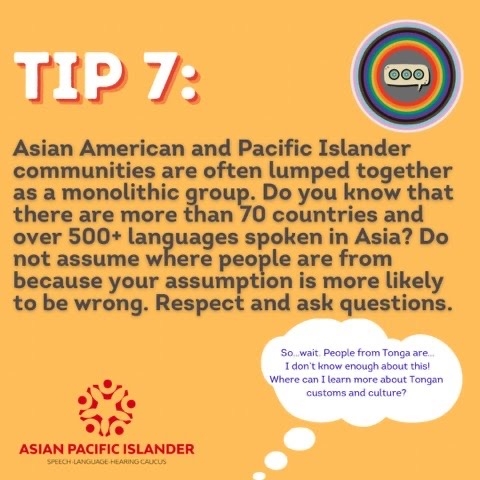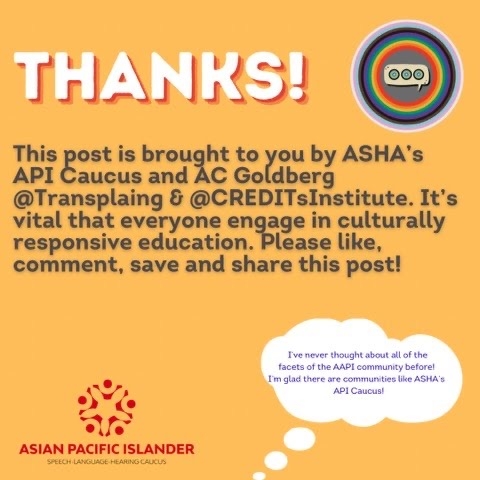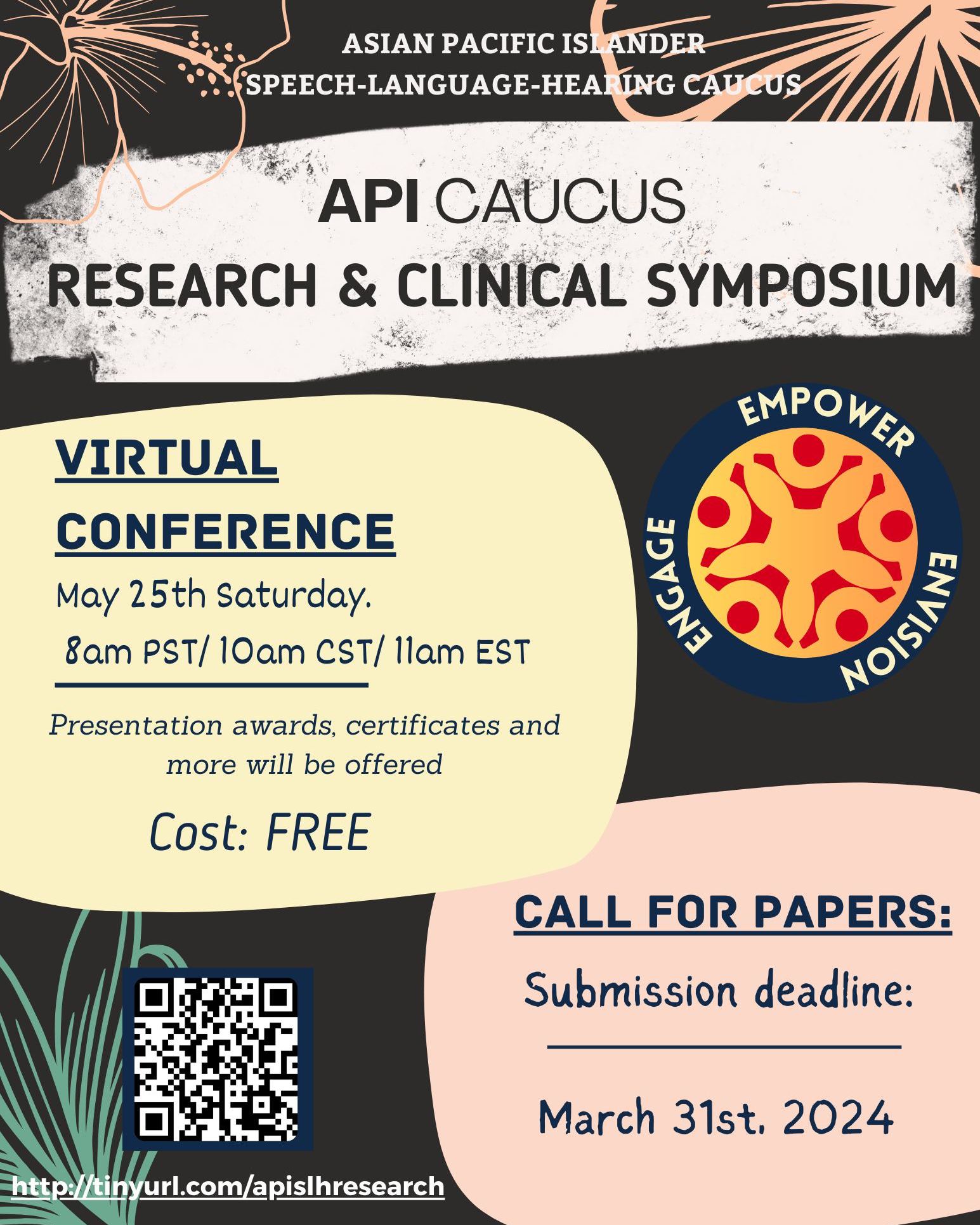 Call for Papers deadline: March 31, 2024
Call for Papers deadline: March 31, 2024
Virtual Event: Saturday, May 25th 2024 8 AM PST / 10 AM CST / 11 AM EST
Cost: FREE
Link: http://tinyurl.com/apislhresearch
2023 API Scholarship Recipients
Congratulations to the recipients of the 2023 API Scholarship.
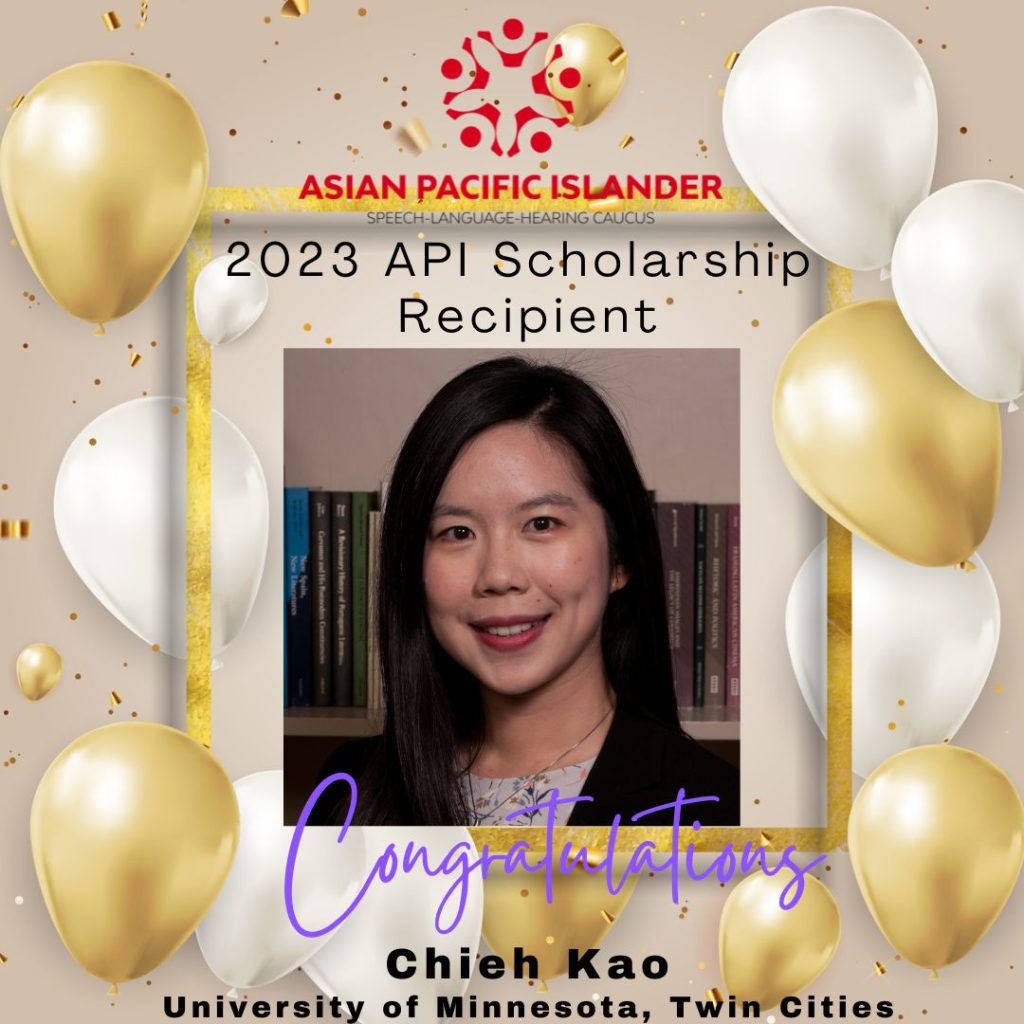
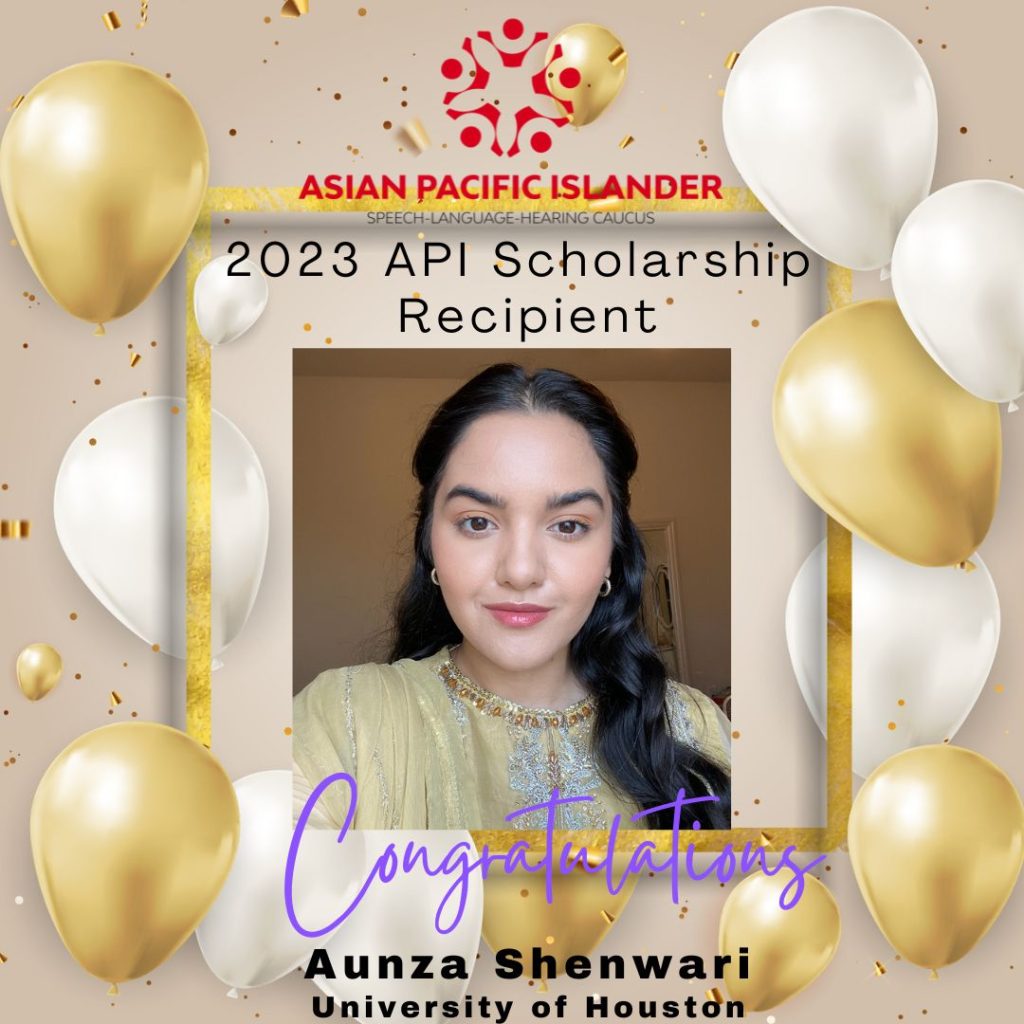
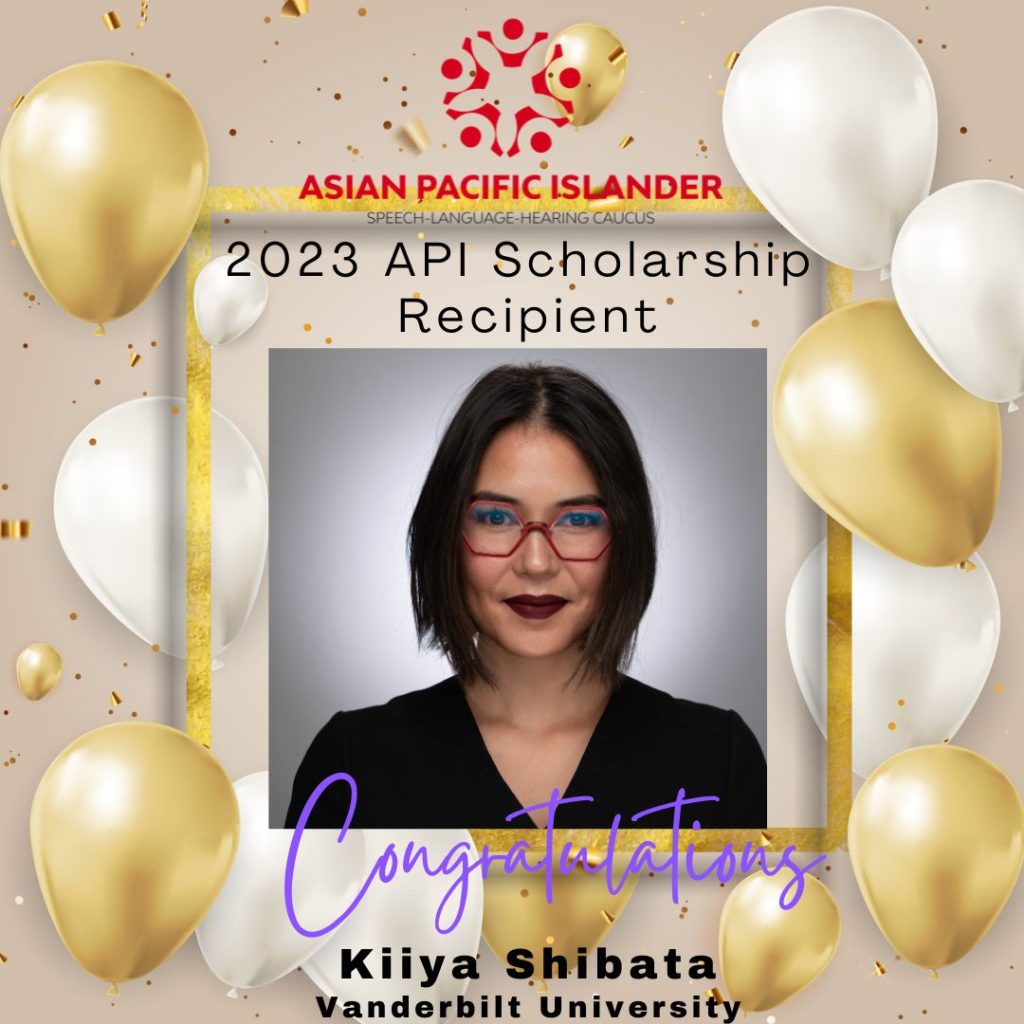
May is Asian American, Native Hawaiian, and Pacific Islander Heritage Month!
This month we recognize the history and achievements of the Asian American and Pacific Islander Community. Let’s talk about how to be good allies to persons of Asian and Pacific Islander heritage all year long. The AAPI community is not a monolith.
Nobody’s identity is just 1 facet. People from any cultural or ethnic group can be neurodivergent, queer, trans, disabled, etc. It’s crucial to learn culturally responsive practices when working with people of ALL backgrounds.
This post is brought to you by the collaboration between the API Caucus and AC from @creditsinstitute. Thanks for being here to learn.
Click the BUTTON to view our Gallery of submissions from our members.
“Summer – June and July – in Taipei” by Claire Liu
《夏日-六月與七月》
Author: 劉如芳 Claire Liu
柴可夫斯基的四季-六月,
是夏日船歌。
雙槳輕盪,
夏夜輕風,
石圓如卵,
垂柳漪漪。
小調,鬱鬱滄滄,
大調,仲夏回憶。
在河畔灌木叢裡似螢光
閃爍,
住著〈仲夏夜之夢〉調皮的帕克,
點亂鴛鴦譜,仇人變戀人。
時序迎來七月。
濕熱膨脹了肺,
凝滯如休止符,
讓人期待一個爽快。
而
午後雷陣雨總是像
清涼眼藥水,
讓夜空如眸的星子閃閃發光,
讓人以為
自己被矯正了視力,
其實只是大自然矯正了人的
烏煙瘴氣。
Summer – June and July – in Taipei
by Claire Liu
Translation: Claire Liu / Yenyi Juo
Tchaikovsky’s Four Seasons – June,
is a summer barcarolle.
The oars gently sway
in the summer night breeze.
The pebbles smooth as eggs,
The weeping willows caress
In minor key, melancholic,
in major key, midsummer memories.
In the bushes by the riverbank,
where fireflies flicker,
lives mischievous Puck from “A Midsummer Night’s Dream,”
toying with romance,
turning enemies into lovers.
With the arrival of July,
The humid heat expands the lungs,
stagnant like a rest symbol,
makes one long for refreshment.
And
afternoon thunderstorms are
cool eye drops,
the stars in the night sky sparkles,
misleading one
into believing that one’s eyesight has been corrected,
when in fact it’s just one’s miasma
that’s been cured by nature.
Introduction:
This poem was composed in June 2022, before my arrival in the United States to pursue a degree in Speech-Language Pathology. It captures the essence of summers from my past in Taipei City, blending memories and emotions with a
dash of imagination and life’s flavors in a subtle manner. The Chinese language differs greatly from English, as a single word can convey multiple meanings and evoke various sceneries. This enables montage-like images to be conveyed with brevity. This telegraphic language is a common characteristic found in Chinese poetry.
“Prelude” by Dong-ju Yun
서시
윤동주
죽는 날까지 하늘을 우러러
한 점 부끄럼이 없기를,
잎새에 이는 바람에도
나는 괴로워했다.
별을 노래하는 마음으로
모든 죽어 가는 것을 사랑해야지
그리고 나한테 주어진 길을
걸어가야겠다.
오늘 밤에도 별이 바람에 스치운다.
Prelude
Dong-ju Yun (1917-1945)
Let me have no shame
Under the heaven
Till I die
Even winds among the foliage
Pained my heart
With a heart that sings of the stars,
I’ll love all dying things
And I must fare the path
That’s been allotted to me
Tonight also
The winds sweep over the stars
Dong-ju Yun is a poet who wrote one of the most popular poems in modern Korean literature. He protested against Japanese Invasion/Occupation back in the early-mid 1900s through writing meaningful poems that represented many Koreans’ 한 (Han; could be translated into “emotional longing for justice”).
Contributor: HaeJi Lee
“Equity vs. Equality” by Bryce Mergens
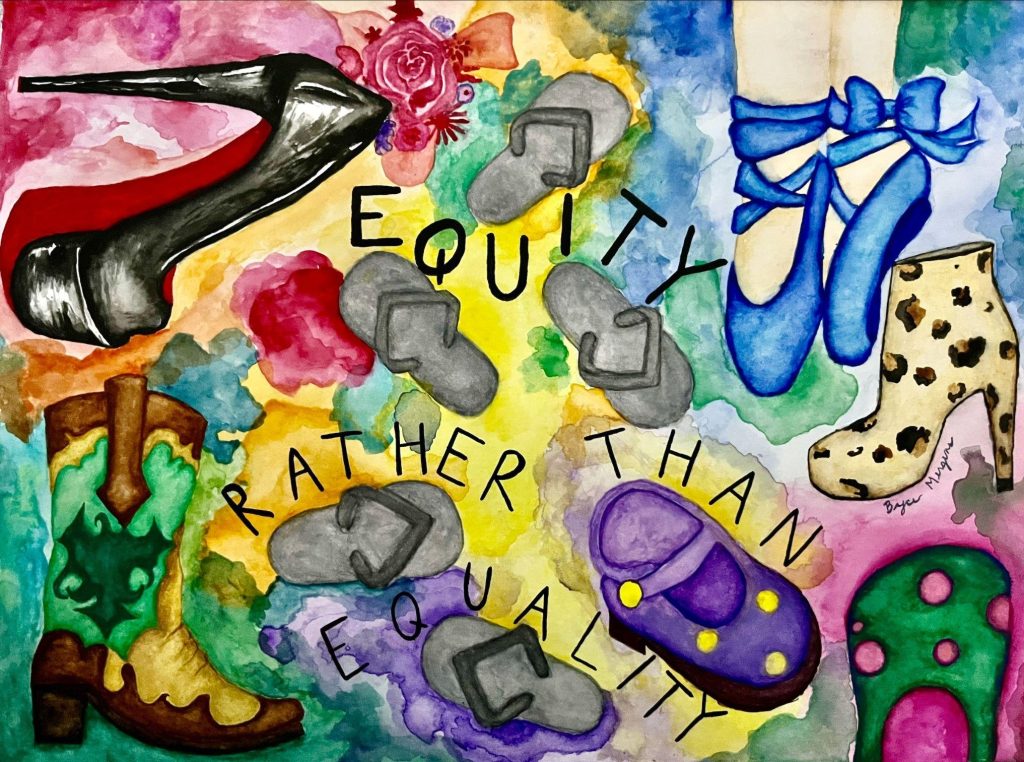 Equity and equality are often confused, without knowing the true meaning of equity. Equality means that everyone should have an advantage, but the same advantage. We could provide everyone with shoes, specifically the same size and style of flip-flops. Flip-flops aren’t going to work for everyone or every situation, especially if they are all the same size. Each individual person is different, so their advantages and shoes should be different. Equity is about giving each person what they need to have, in order to have the same opportunities and advantages as everyone else.
Equity and equality are often confused, without knowing the true meaning of equity. Equality means that everyone should have an advantage, but the same advantage. We could provide everyone with shoes, specifically the same size and style of flip-flops. Flip-flops aren’t going to work for everyone or every situation, especially if they are all the same size. Each individual person is different, so their advantages and shoes should be different. Equity is about giving each person what they need to have, in order to have the same opportunities and advantages as everyone else.
By Bryce Mergens
